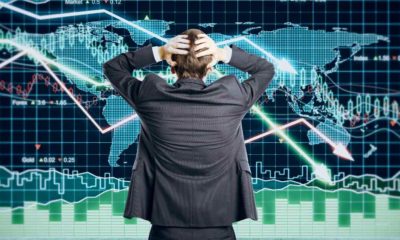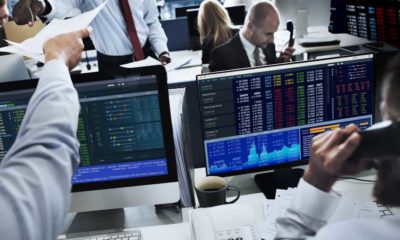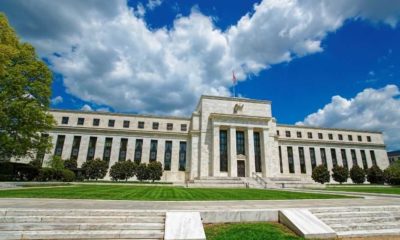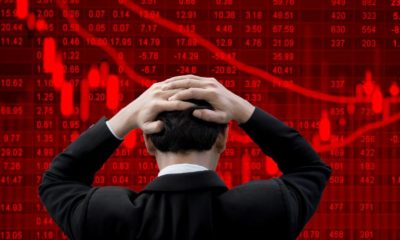Economy
Will The Stock Market Predict The Next President?
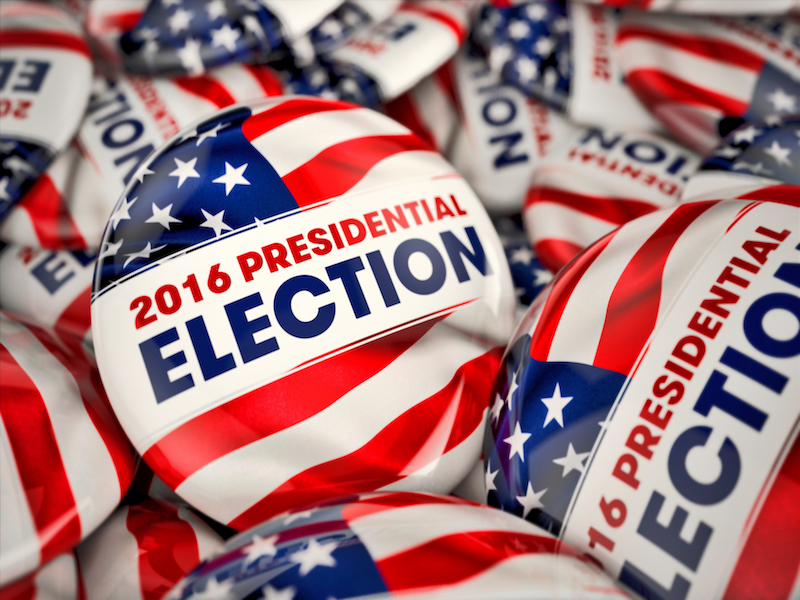
Political opinion polls are fast becoming a laughing stock; flipping a coin rarely proves much better at the game of predicting political outcomes. There is, however, one tried and tested way which has an almost 90% success rate in guessing who the president will be: the economy.
The More People Involved in The Prediction-Making Process, The More Accurate It Is
One of the main arguments for free market capitalism versus a centrally planned economy is that the aggregated decisions of millions of people are much wiser than those of political elites.
This logic seems to be at play when we consider that the stock market performance of the S&P 500, the largest and most significant companies in the US today, has predicted all of the last 22 US Presidential elections, bar three.
Time and time again, the economy comes out as the most important issue to voters.

The Logic Behind This Phenomena
Now, hold your horses.
This isn’t black magic or a sinister corporate conspiracy.
It is actually very logical and just goes to show how the economy is king when it comes to decision making.
Strategas Research Partners have looked into this.
Daniel Clifton, head of policy research, explains that it is simply the case that a strong economy causes people to be contented with the incumbent party, meaning they vote them in again.
In the period from August 8 to November 8 (the date of the election), if the stock values of the S&P 500 rise, the incumbent party (the Democrats) will be re-elected.
Should they fall, this last minute weak performance proves enough to push people over to elect the opposition, in this case, Mr. Trump.
Investors Get Cold Feet; Incumbent Sees Defeat
The possibility of a change in regime also provides a feeling of insecurity, and we all know how much shareholders and investors abhor that.
Thus, they will be more likely to play it safe and reduce activity if they perceive a new government on the horizon.
While people’s perceptions and reality might not always align, it is the aggregated activity of everyone that proves remarkably astute in predicting the change in the wind coming.
So, the economy weakens.
Investors get scared and pull out, or save rather than spend.
Economy further weakens.
Each factor compounds the other. Get it?
Third Term? The Theory Holds Firm
Research shows that this trend is even more apparent when a political party is re-elected for a third term.
The last two times this has occurred, the S&P 500 stock market has seen a huge rally in the last few months before the election.
This makes sense.
For a third term, a political party would need strong economic performance to justify their re-election, as after eight years, a president and party have done more than enough to piss off a lot of people.
That’s just part and parcel of being in power.
Strategas’ research has found that in ‘open’ election years, where a president has finished their eight-year tenure, and so there is no incumbent president, the stock markets have fared worse.
Below is a graph showing how turbulent the stock market is when a new president needs to be elected, compared to averages from all elections years and all calendar years.
This effect is amplified in the months leading up to the election.

Stocks don’t fare so poorly in re-election years and non-Presidential election years.
The political climate around a re-election is usually a lot calmer as you know what you are getting with a re-election.
Recent lessons from across the channel
The UK elections in 2010 and 2015 were determined almost entirely by the economy.
In 2010 the UK was in a deep financial crisis and thus Labor were defeated for the first time in 13 years.
Then, as the Conservatives defended their office in 2015, the high economic growth that year proved enough to push through a majority despite them faring poorly in all the opinion polls and a strong lack of popular political clout.
Final Word
With the coming election the most unpredictable yet, with polls and betting odds all over the place, the economy may well prove to be the best indicator we have available.
Additionally, with Brexit a distinct possibility, global, and thus US markets will be even more insecure.
The UK is the fifth largest economy in the world, and the uncertainty surrounding its trading future will cause havoc.
However, that doesn’t necessarily mean weak performance by the markets, it will simply be anything but predictable. Keep your eye out for the general trend and you could find yourself one step ahead of others in the political guessing game.

